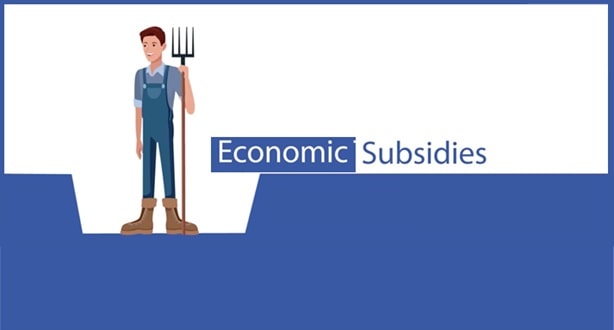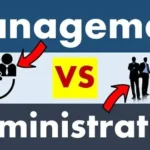As you may already know, subsidies are nothing else but the financial help or money that flows from the government to organizations or to lower the cost of services, that’s pretty much the definition of subsidies in a nutshell. And in your particular country, there could be many subsidies in action which you can point out in no time, but that might have got you thinking like, are these subsidies any good for the economy, right? Well, that’s what we are gonna cover in today’s post because here we will be diving deep into the possible advantages and disadvantages of subsidies on the economy. Alright, here we go.

Advantages Of Subsidies On Economy
1. Kicking Economic Growth Into High Gear
So, here’s the deal: Subsidies are like the secret sauce for turbo-charging our economy. They cut down the hefty costs for businesses, making it a whole lot easier to crank up production. This could mean cheaper prices for us, the happy consumers. Imagine, subsidies on the basics like raw materials could make it dirt-cheap for manufacturers to pump out products, bumping up supply and maybe even dialing down prices for us, sparking a serious demand party. And in those critical yet kind of struggling sectors like agriculture and manufacturing, subsidies are what give a boost to the scene.
2. Making the Essentials Accessible to All
Another big reason why subsidies are implemented in the first place is that these schemes are there to make essential things accessible to all. And we are talking about essentials like food, healthcare, and education. The goal with these subsidy schemes is to help out the ones who are in need, not the ones who already have fast wallets in the community, you know?
3. Job Creation and the Brainwave Boom
You see, Subsidies are also about getting more folks into work and sparking off some serious brainpower innovations. It is kinda hard to believe, but these subsidies implemented by the government actually help cut down the unemployment rates, which again is like a boost for the community, and we don’t need to explain how that works since you already have a good idea of that, right?
4. Greening the Scene
And here’s the thing you see: Some subsidies are encouraging us to embrace renewable energy and leave our old, polluting habits behind, like forever. By funneling funds into green tech, the government isn’t just tackling climate change head-on; it’s also laying down the groundwork for new jobs and industries that’ll keep our economy green and growing you know?
Disadvantages Of Subsidies On Economy
1. Messing Up the Market and Wasting Resources
So, when the government hands out subsidies, it’s kinda like they’re trying to do a good thing, but it doesn’t always end up that way you know? Here’s the thing you see, subsidies can really mess things up by making companies or folks produce or buy more of something than they really should. It’s like, imagine the government decides to help out farmers by paying part of the costs for growing certain crops. Sounds about right, correct? But then, what happens is, there’s way too much of that crop, nobody knows what to do with all of it, and the price just drops. That’s not the end of it, though. People start thinking, “This stuff is cheap,” and they grab more of it than they need, which isn’t exactly smart or good for anyone in the long run.
2. Putting a Strain on Government Wallets
You know, when it comes to subsidies, they’re like a huge weight on the government’s wallet. To keep these subsidies going, the folks running the show either gotta hike up taxes or pull funds from super important stuff like health care, schools, or building roads and bridges. This shuffling around of cash can really drag down how fast our economy grows over time you know? Plus, sticking with subsidies means the government could end up drowning in debt, making it super hard to manage its money well.
3. Making Inequality Worse
Here’s the thing you see: subsidies often end up helping the rich folks or big companies more than the little businesses, you know? Take energy subsidies, for instance; they mostly benefit people who use a lot of energy (hint: not the ones struggling to pay the bills). Plus, there’s a chance for some shady deals, with money going to pals in high places instead of where it’s really needed.
4. Bad News for Our Planet
Subsidies can also be a nightmare for the environment. Let’s talk about farming, getting money to use more fertilizers and stuff that can mess up the soil, pollute water, and hurt wildlife. And don’t get me started on fossil fuels. Paying to keep them cheap just means we keep polluting instead of moving on to cleaner energy, making climate change even scarier, and that becomes kinda concerning if you think of it long term, and how long have we been doing this already.
5. Long-Term Dependency
Getting used to subsidies can make industries lazy about getting better and coming up with new ideas. Why bother if the government’s gonna bail you out, right? This means they might fall behind others that aren’t getting help and struggle to keep up in the global market.
6. A Headache to Get Right
Trying to make subsidy programs work well is super tricky. It’s hard to make sure the help goes to the right people, to check if it’s actually doing any good, and to keep things efficient. A lot of the time, a big chunk of the money doesn’t even get to the people it’s supposed to help, getting lost in costs, corruption, or just going to folks who weren’t meant to get it. And when the government steps in with money, it might scare off private businesses from investing, which isn’t good for bringing in new ideas and growing the economy.
Conclusion
That’ll do it. We hope that our today’s post has helped you a lot to understand this whole subsidy game to a better extent, you know? Well, at least, that’s what we aimed for, so yeah, we will meet you in the next one.

Meet Suhas Harshe, a financial advisor committed to assisting people and businesses in confidently understanding and managing the complexities of the financial world. Suhas has shared his knowledge on various topics like business, investment strategies, optimizing taxes, and promoting financial well-being through articles in InvestmentDose.com


